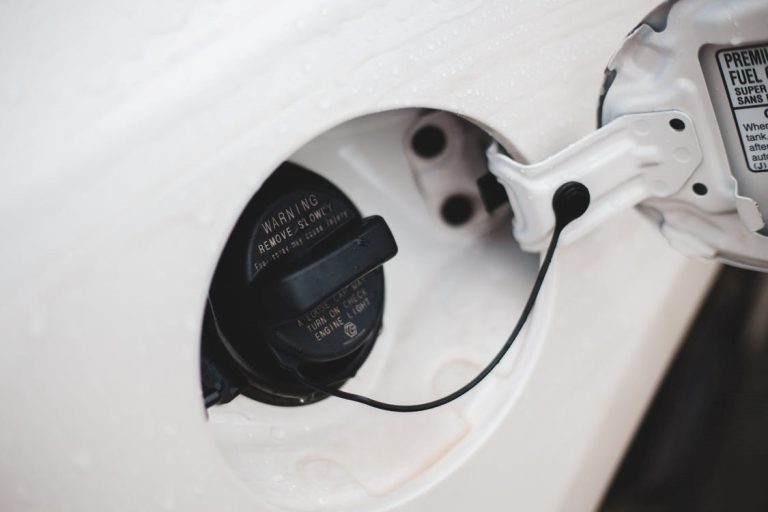Does Car Insurance Cover Hit and Run? Find Out Now!
Car insurance may cover hit and run incidents, but it depends on the specific policy and coverage. In some cases, uninsured motorist coverage or collision coverage may provide compensation for damages caused by a hit and run driver.
It is important to review your policy and contact your insurance provider to understand the coverage options available to you in the event of a hit and run.
Introduction To Hit And Run Incidents
The reality of hit and run accidents is that they can happen to anyone at any time. These incidents occur when a driver involved in a collision flees the scene without stopping to provide their information or render aid. Hit and runs can leave victims feeling helpless and unsure of what steps to take next.
Immediate Steps After Experiencing a Hit and Run
- 1. Stay calm and assess the situation: Take a moment to collect yourself and evaluate if you or anyone else involved in the accident requires immediate medical attention.
- 2. Gather information: If possible, try to obtain any details about the other vehicle involved, such as the license plate number, make and model, and any distinguishing features.
- 3. Document the scene: Take pictures of the accident scene, including the damage to your vehicle and any surrounding landmarks that may help identify the location.
- 4. Contact the authorities: Report the hit and run to the police as soon as possible. Provide them with all the information you have gathered.
- 5. Notify your insurance company: Inform your insurance provider about the incident and provide them with the police report and any other relevant information.
- 6. Seek legal advice: If you have been injured or sustained significant property damage, consider consulting with a personal injury attorney who specializes in hit and run cases.
Car Insurance Basics
Car insurance coverage for a hit-and-run incident depends on the type of policy you have. Comprehensive coverage typically covers hit-and-run accidents, while liability coverage may not. It’s important to review your policy’s terms and conditions to understand the specific coverage. In the event of a hit-and-run, uninsured motorist coverage can also provide protection. Understanding these policy terms and conditions is crucial to knowing what is covered in such scenarios.
Understanding Hit And Run Coverage
Understanding Hit and Run Coverage:
When it comes to car insurance, it’s important to know if your policy covers hit and run incidents. Collision coverage typically helps pay for damages to your vehicle in the event of an accident, including hit and run situations. However, it’s worth noting that collision coverage usually requires you to pay a deductible before the insurance kicks in.
Another important coverage to consider is uninsured motorist coverage. This type of coverage may protect you if you’re involved in a hit and run accident with an uninsured or underinsured driver. Uninsured motorist coverage can help cover medical expenses, vehicle repairs, and other costs resulting from the accident.
It’s important to review your policy and speak with your insurance provider to understand the specific coverage and limits that apply to hit and run incidents. By having the right coverage in place, you can have peace of mind knowing that you’re protected in case of a hit and run accident.
Filing A Claim For A Hit And Run
When filing a claim for a hit and run, it is crucial to document and gather evidence to support your case. This includes taking photographs of the damage, obtaining a police report, and gathering any witness statements. Providing detailed documentation will help expedite the claim process and increase the likelihood of a successful outcome.
Impact On Insurance Premiums
Car insurance coverage for a hit and run incident can lead to rate increases. If you make a claim due to a hit and run, your premiums may go up. In the case of no-fault claims, your insurance company might still cover your expenses, such as vehicle repairs or medical bills. However, your premiums could still be affected. It’s essential to understand your policy’s coverage and how it applies to hit and run situations. Working with high-risk auto insurance specialists might be necessary if you have a hit-and-run on your record. Additionally, Texas law requires auto insurance companies to offer coverage for hit-and-run incidents, allowing you to add this coverage at any time. This coverage can work together with collision coverage to pay for car repairs after a hit-and-run accident.
Legal Consequences Of Hit And Runs
If you’re involved in a hit and run, your car insurance may cover the damages, but it depends on your policy. However, in some cases, it may result in increased premiums. It’s crucial to review your coverage and consider adding uninsured motorist protection to safeguard against hit and run incidents.
| Legal Consequences of Hit and Runs |
|---|
| Penalties for Committing a Hit and Run |
| Hit and runs can result in serious legal consequences, including hefty fines, suspension or revocation of a driver’s license, and even imprisonment. In many states, a hit and run that causes injury or death is considered a felony offense, which can result in a lengthy prison sentence. Additionally, a hit and run conviction can result in higher car insurance rates and difficulty obtaining insurance coverage in the future. |
| Legal Recourse for Victims |
| Victims of hit and run accidents may be able to seek legal recourse by filing a civil lawsuit against the at-fault driver. This can help cover any damages or medical expenses incurred as a result of the accident. Additionally, some states offer special funds or programs to help hit and run victims pay for medical bills and other expenses. It is important for victims to contact the police and gather as much evidence as possible in order to increase the chances of identifying and prosecuting the at-fault driver. |
State-specific Insurance Regulations
Car insurance coverage for hit and run incidents varies depending on state-specific insurance regulations. In some states, uninsured motorist coverage may provide protection for damages caused by a hit and run driver. It’s important to review your policy and consult with your insurance provider to understand the specific coverage available to you.
| Variations in Coverage by State: |
| Car insurance coverage for hit and run accidents can vary by state. In some states, uninsured motorist coverage may be required in order to have coverage for hit and run accidents. In Texas, for example, drivers are required to have uninsured/underinsured motorist coverage, which can provide coverage for hit and run accidents. However, it is important to note that the specific regulations and requirements for hit and run coverage can vary by state. |
| State-Specific Insurance Regulations: |
| Texas Hit and Run Insurance Laws: |
| In Texas, drivers are required to have uninsured/underinsured motorist coverage, which can provide coverage for hit and run accidents. This coverage can help pay for damages and injuries sustained in a hit and run accident. It is important to note that this coverage is optional in some states, but in Texas, it is required by law. |
Protecting Yourself From Hit And Run
Car insurance coverage may provide protection in the event of a hit and run incident. It’s important to choose the right insurance policy that includes coverage for hit and run accidents. In addition, taking preventative measures and following safety tips can help protect yourself in such situations.
Conclusion
If you’ve been involved in a hit and run accident and you’re wondering whether your car insurance will cover it, the answer is yes, but it depends on your policy. Comprehensive coverage will typically cover damages caused by hit and run accidents, while liability coverage may not.
It’s important to review your policy and speak with your insurance provider to understand your coverage options. Remember to report the incident to the police and your insurance company as soon as possible. Stay safe on the roads and drive defensively to avoid accidents.






